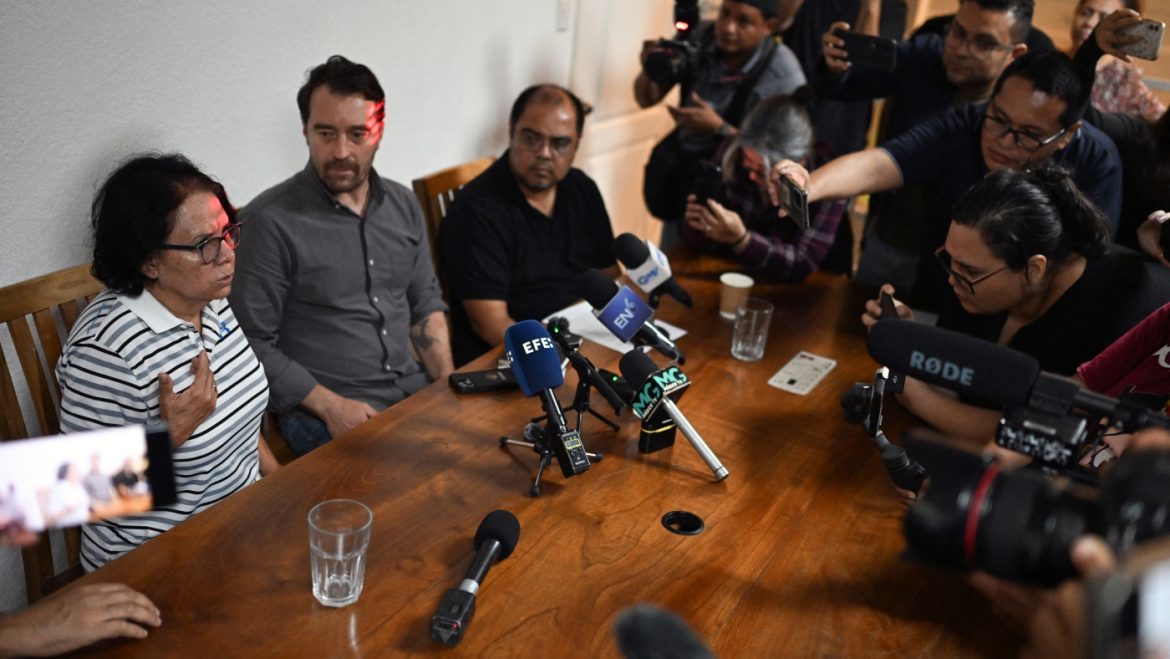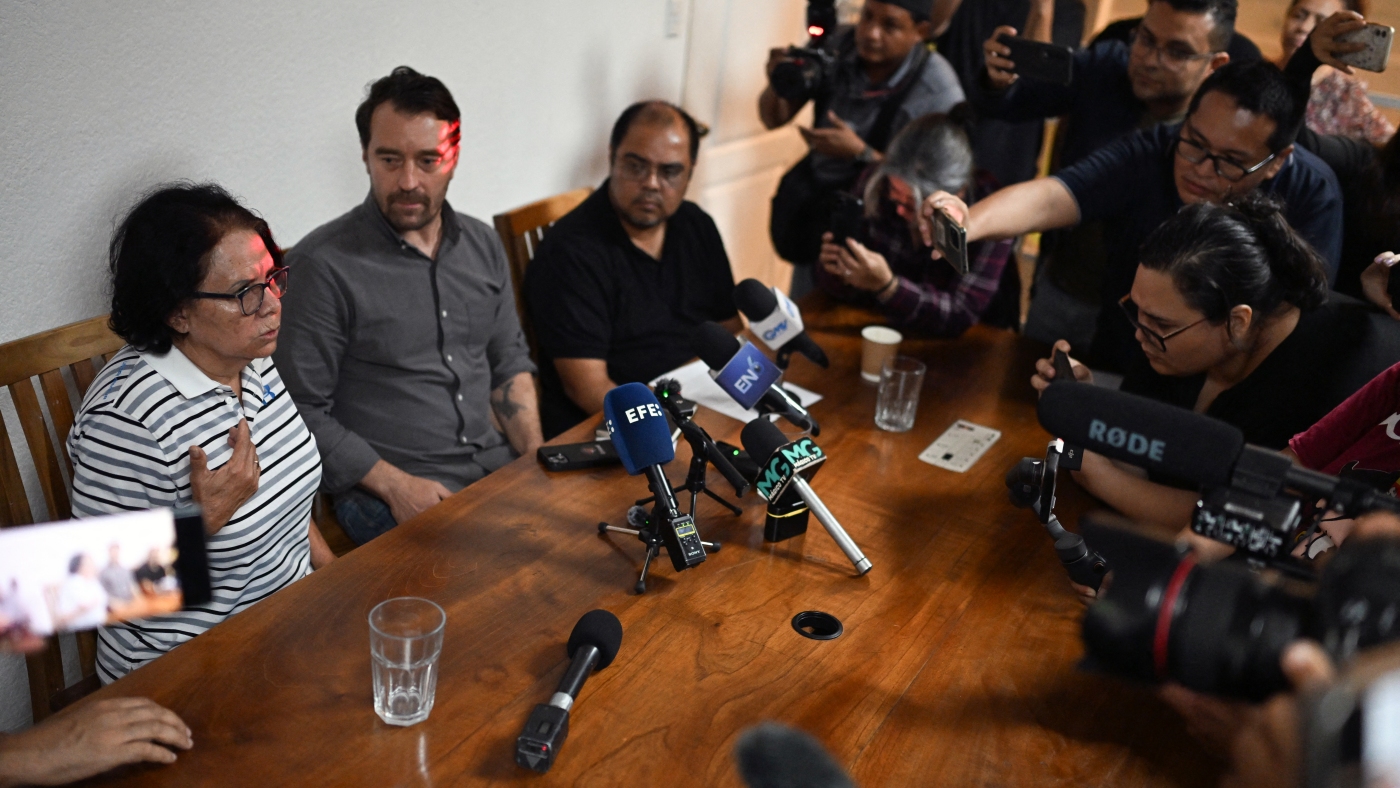El Salvador’s Recent Arrest of Ruth Eleonora López: An In-Depth Analysis
Introduction: A Crisis at the Intersection of Human Rights and Political Power
The recent arrest of Ruth Eleonora López, a prominent human rights and anti-corruption lawyer in El Salvador, has sparked widespread concern and condemnation from national and international human rights organizations. López, a key figure associated with Cristosal, a leading human rights group, is known for her vocal criticism of President Nayib Bukele’s administration, particularly regarding human rights practices and anti-corruption efforts. This report examines the multifaceted aspects of her arrest, situating it within the broader political and human rights climate in El Salvador, and explores the implications for the rule of law, civil liberties, and international response.
Background on Ruth Eleonora López and Her Advocacy
Ruth López has been a pivotal voice defending vulnerable populations in El Salvador. Her notable work includes advocating for deportees—especially Venezuelan migrants affected by U.S. immigration policies—and challenging governmental corruption. As the head of an anti-corruption initiative under Cristosal, López has consistently brought scrutiny to irregularities and abuses within the Salvadoran government apparatus. Her legal activism has positioned her as a significant opponent to President Bukele’s administration, which has been criticized for authoritarian tendencies and aggressive crackdowns on dissent.
Circumstances Surrounding the Arrest
López was detained late on a Sunday by El Salvador’s National Civil Police, with official accusations centering on alleged embezzlement tied to her previous government position. However, human rights observers have underscored the context of her detention as part of a larger pattern of suppressing political opposition and critical voices. Reports indicate that after the arrest, her whereabouts were initially unknown, leading to calls from numerous human rights organizations for immediate transparency and her release.
Patterns of Crackdowns on Dissent under President Bukele
President Nayib Bukele’s tenure has been marked by a “state of emergency” enabling sweeping police powers to detain thousands, ostensibly to combat rampant crime and gang violence. However, this has coincided with documented human rights abuses, including arbitrary detentions without due process, limited access to legal counsel, and cases of torture and deaths in custody. The arrest of López fits within this milieu wherein critics assert that anti-corruption and dissent-related allegations are increasingly wielded to stifle opposition and civil society activists.
Legal and Human Rights Implications
The detention of a lawyer with significant standing in human rights advocacy raises serious concerns about the independence of El Salvador’s judicial and law enforcement institutions. The charge of embezzlement against López invites scrutiny, particularly given the timing and her role as an outspoken critic. This has prompted accusations of politicization of law enforcement mechanisms. Additionally, her initial “enforced disappearance” immediately following arrest contravenes international standards guaranteeing detainee rights and due process.
Responses from Domestic and International Actors
Human rights organizations such as Cristosal and international bodies have condemned the arrest, framing it as an escalation of repressive measures against civil society. Calls have been made for transparent investigations, safeguards for López’s wellbeing, and adherence to legal standards. Media outlets, human rights defenders, and legal experts have highlighted this case as emblematic of the erosion of democratic norms under Bukele, emphasizing the need for international attention and pressure.
The Broader Human Rights Context in El Salvador
El Salvador has seen significant human rights challenges under the current administration. Amnesty International and Human Rights Watch have reported thousands of arbitrary detentions since the enactment of the state of emergency, alongside incidents of torture and fatalities within custody. Opposition figures such as Ernesto Muyshondt, the former mayor of San Salvador, remain detained for prolonged periods surpassing legal limits, reflecting systemic issues in due process protections and judicial independence.
Implications for Civil Society and the Rule of Law
The targeting of a high-profile human rights lawyer reverberates beyond the immediate case, signaling an increasingly fraught environment for legal defenders, activists, and independent institutions. The narrowing space for dissent may impact democratic governance, the protection of human rights, and international perceptions. It also raises questions about the efficacy of anti-corruption campaigns when legal processes are potentially leveraged for political ends.
Conclusion: Navigating a Troubling Turning Point
The arrest of Ruth Eleonora López marks a pivotal moment in El Salvador’s ongoing human rights crisis. It encapsulates tensions between state security narratives and fundamental legal protections, spotlighting the vulnerabilities faced by advocates challenging entrenched powers. The unfolding situation demands vigilant monitoring, robust advocacy for legal fairness, and a reaffirmation of human rights principles. How El Salvador addresses this case will significantly influence its trajectory concerning democratic institutions and respect for civil liberties in the years ahead.


